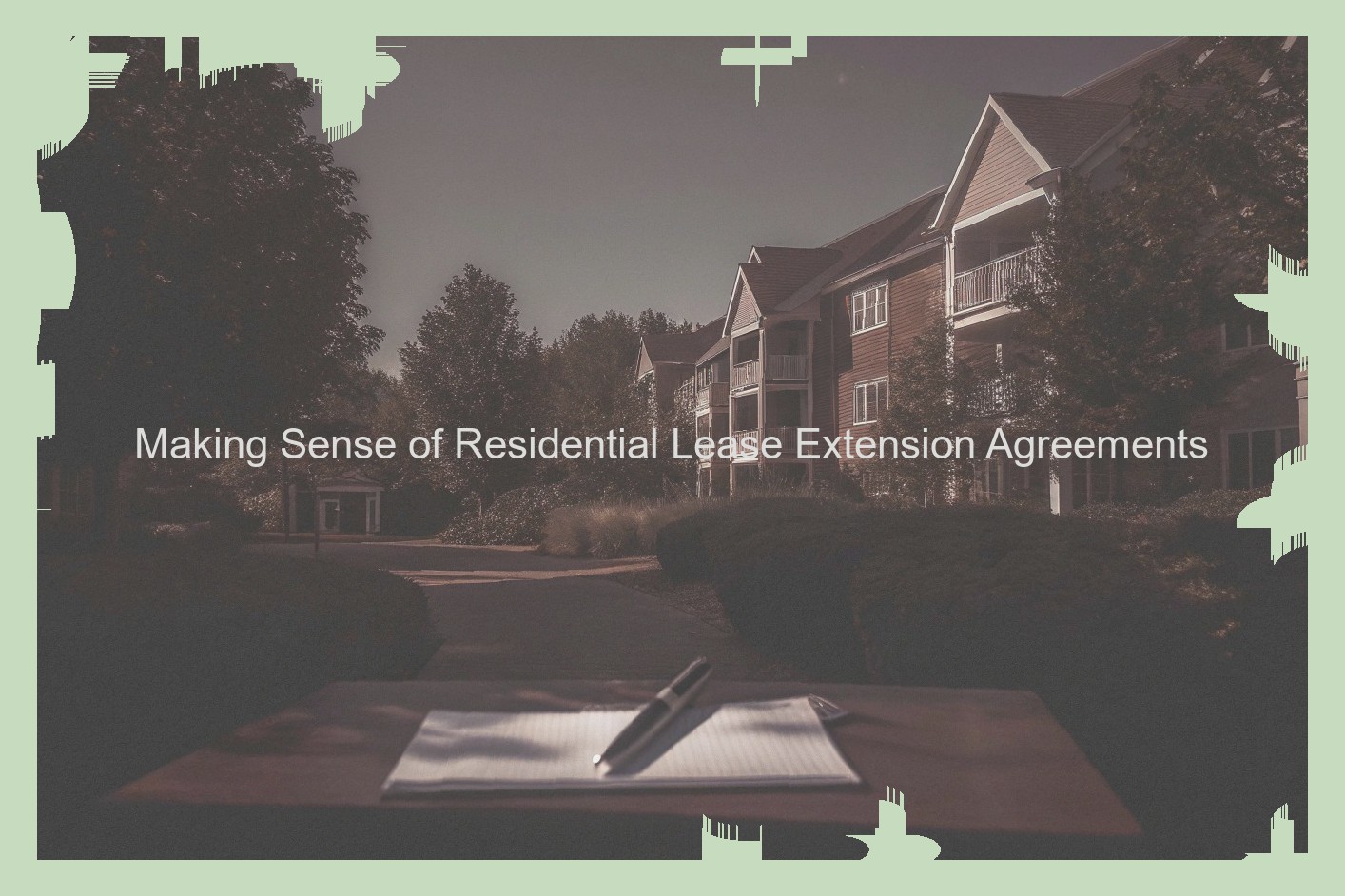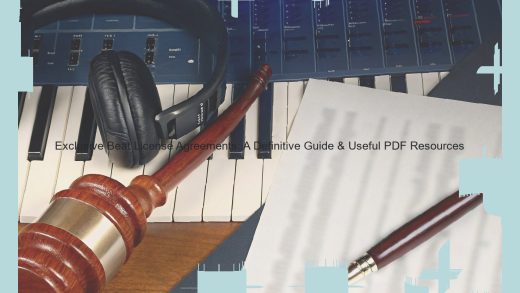What’s a Residential Lease Extension Agreement?
A residential lease extension agreement is a contract that extends the duration of a residential or commercial lease of property already in existence. A lease extension agreement is common when either party wants to extend the term of a lease beyond the original period of time provided for in the lease. The parties may not want to renegotiate the terms of the lease but simply want to continue on with the same terms.
The extension may be for a specified period of time or may be for an indefinite period of time. An extension is a document that is very similar to a lease agreement , except that there is often no negotiation of terms due to the fact that the rights and obligations of the parties are clearly set forth in the old lease agreement. Both parties may wish to consider a lease extension agreement under circumstances where:
In many cases, the rental rate or base rent amount is the same as set forth in the prior lease agreement. In other circumstances, the rental amount may be adjusted pursuant to an increase that is established in the last commercial lease agreement.

Essentials of a Lease Extension
A lease extension guarantees the lessee the right to hold over the lease on the existing terms and conditions for a further period. As with the original lease, the lease extension should clearly spell out the parties to the lease, the premises subject to the lease, the date the existing lease terminates and when the new lease begins. The extension should describe the lease which it is extending and include a specific reference to the existing lease and its terms in order to minimise the potential challenge that the extension is unwitnessed and therefore invalid. If there are variations to the original lease which are agreed by the parties, consideration should also be given to whether those variations should also be referenced in the lease extension document to ensure that it is clear that those variations continue to apply.
Advantages of a Lease Extension
Both tenants and landlords benefit from extending a lease rather than going through the hassle of beginning the process again. For tenants, it often means a reduction in rental costs, especially if they have completed the original term. It can also lead to a much more convenient outcome. For example, in some jurisdictions, rent control laws do not apply to renewals of a lease but do apply when there is a new lease for the same space.
Additionally, making alterations to a space that the tenant has outgrown becomes a drain on both the time and resources for all involved. The tenant has to invest money in the physical changes. The landlord may suffer from the loss of revenue while the changes are made.
There are several benefits for landlords as well. First, it is more cost effective than going to court to have a landlord-tenant dispute resolved. Securing a tenant for a longer term allows for rent increases that doesn’t scare off a quality tenant. Finally, the tenant continues to reside in a space that has been proven to work for them.
How to Extend a Residential Lease
Residential Lease Extension Agreements
There are some steps that are necessary for the tenant/landlord to follow in order to formally extend a lease.
First, make sure that the lease has expired. If this occurs, then the next step is to contact the landlord and negotiate an extension. Assuming that there are mutually agreeable terms, thereafter both parties would sign a residential lease extension agreement. Keep in mind that both parties must agree to the extension.
Simply stating that the tenant can "stay as long as possible" is not binding. There must be a fixed duration for the extension. The reason for this is to avoid a situation where a party states that an agreement has been made to extend, while the other party states that an agreement has not been made. If a party is adamant that there has been no agreement to extend, under various state laws, then the tenant will have unlawful detainer remedies available to them.
If both parties do execute the residential lease extension agreement, a Tenant Rent receipt is a good way to document that rent has been paid through the period of the extension. Moreover, it is always important to keep a copy of the fully executed residential lease extension agreement, this way a party can confirm that the extension does exist and how long it exists.
This is also important in the event that one of the parties to the lease dies. In such a situation, the executor of the estate can present the lease extension to the landlord or landlady and avoid any confusion. Because it is very important to have the extension expressly stated in writing through a lease extension agreement, we have posted a sample extension agreement on the NorCalRealEstateLaw.com document center. We have included the sample in our sample forms section to assist our clients that may wish to extend one of their leases.
Common Pitfalls
One common mistake that some tenants and landlords make is failing to speak with a legal professional upon deciding to extend the lease. Because the property is not changing ownership, most think that they can just agree on a lower rental amount and go on their way. However, when extending an existing lease , it’s important to have legal terms and conditions put into place that will ensure that both parties are protected should any issues occur.
Another pitfall to avoid when extending a rental agreement is assuming constant communication. Whether you’re a good communicator or not, implementing a lease agreement that will only carry forward should you both stay in touch can be problematic. If correspondence on future leases falls through, you may be at risk of being forced to pay a higher rent or losing your place entirely.
Probable Legal Issues
The laws surrounding lease extension agreements can vary from state to state and jurisdiction to jurisdiction. This secondary source of law would be codified by statute or developed by case law through judicial opinions.
In the District of Columbia, for example, the concept of a residential lease extension agreement is governed by D.C. Official Code § 42-3502.05(a), which provides that "unless the lease states otherwise, the landlord shall give the tenant at least 30 days’ written notice before the expiration of the term of a lease in order to extend the tenancy under its current terms for a period of not more than one month if the tenant complies with all terms of the lease other than the payment of rent…" To extend the lease for a longer term than what is provided pursuant to the statute, the parties would have to enter into a new written agreement which supersedes the old agreement. Glover v. District of Columbia Rental Hous. Comm’n, 853 A.2d 1126, 1131 (D.C. 2004).
Appleton v. Claridge House, 559 A.2d 317 (D.C. 1989) further explains that D.C. Official Code § 42-3502.05(a) is a remedial statute designed to protect tenants living in a rental unit for one year or more. Id. at 318. The protection allows a tenant the right to renew its lease terms for one additional month or to renegotiate a new lease.
Other jurisdictions may not provide any remedy if a party does not extend its lease terms pursuant to a written renewal provision. If the contract is governed by the Statute of Frauds, and it is not in writing, then the lease may be unenforceable.
Resolving Disputes
Failure to Pay Increased Rent Promptly
When a tenant hasn’t paid the increased rent by the date of the increase, this can lead to problems. Generally, if the delay is slight and the tenant rectifies the issue, the landlord may wish to look the other way. But if the tenant has failed to pay the increased rent for an extended period, it’s a different story. In such instances, it’s best to consult the lease documents. The lease, if approved, probably will include provisions indicating the amount of time a tenant must pay the increased rent. If the tenant has failed to meet his rent obligations per the lease, then the landlord would be entitled to foreclose on a bond or seek other remedies in court.
Disputes Over the Amount of Increase
An increase in rent can typically be expected to range from 3% to 5%. 10% or higher is often seen as excessive. Still, this can depend on the circumstances. For instance, a 10% increase may be expected if the prior rental agreement was well below market rates , recent renovations have increased the space’s value substantially and comparables show similar spaces in the area at similar or even higher rates. If the landlord has no good reason for a large increase, a mediator may be able to help. In many instances, a third party can help to facilitate a successful compromise.
How to Resolve Disputes
If a dispute over rent hikes and a tenant’s obligations results in things becoming contentious, several resolution methods can be employed. A financial settlement might be negotiated that results in a lower rental amount and the ability for the tenant to keep all the furniture rather than turning it over to the landlord. Or maybe the tenant will agree to undertake certain improvements in exchange for a lower rate.
Mediation may not be suitable in all cases. However, when the landlord and tenant have a good rapport, a mediator can help them to come to a mutual agreement. In the event that a mutually agreeable solution cannot be reached, recourse to the courts may be necessary. This could include eviction in cases where the tenant has failed to pay the higher rent. It can also mean litigation to attempt to recover some of the funds owed.


